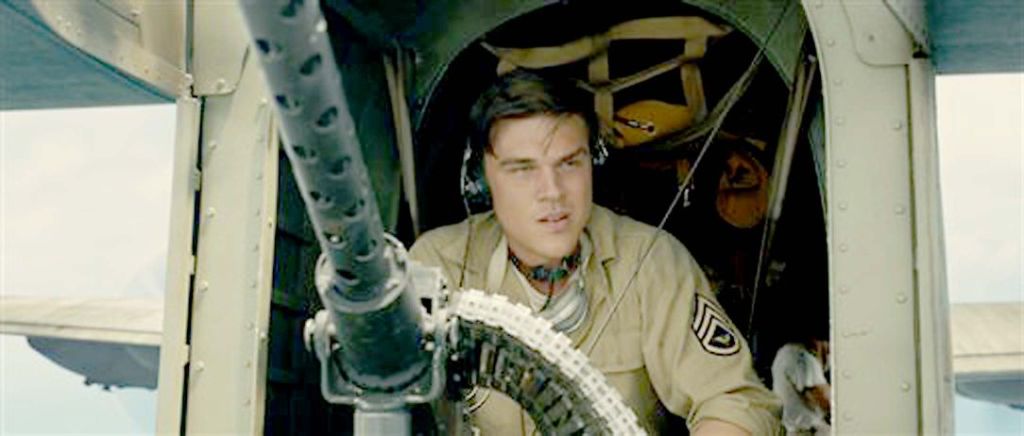‘Unbroken’ shows cracks
Published 5:00 am Friday, January 2, 2015

- In this image released by Universal Pictures, Finn Witrock appears in a scene from "Unbroken."
“Unbroken”
Drama/Biography: 2 hours, 17 minutes
Trending
Starring: Jack O’Connell, Domhnall Gleeson, Finn Wittrock and Takamasa Ishihara
Director: Angelina Jolie
Rated: PG-13 (Violence including intense sequences of brutality, nudity, strong language, and underage drinking and smoking)
Movie Review: This is an adaptation of Laura Hillenbrand’s book as directed by famed actress Angelina Jolie (“In the Land of Blood and Honey,” 2011). “Unbroken” will make audiences pay more attention to her as a director, but this grand and noble story needs better treatment.
Louis Silvie “Louie” Zamperini (O’Connell) is an Olympian runner and a World War II Air Force officer. After a plane crashes, Zamperini and two other members of the plane’s crew, pilot Russell Allen “Phil” Phillips (Gleeson) and Francis “Mac” McNamara (Wittrock), survive on a raft for days.
Then, the Japanese navy captures Zamperini and Phillips after the two men spend 47 days on the raft. Japanese military officials send Zamperini to a prisoner-of-war camp. There, the captors, especially the camp’s malevolent commander Watanabe (Ishihara), torture Zamperini.
Trending
The question moviegoers should ask is what is the focus for this part of Zamperini’s life?
The film focuses on his ability to overcome major barriers throughout his life, starting with his troubles as a youth. The film also centers on his 47 days at sea, and his means to survive harsh conditions there.
Torture is definitely a part of this story also.
The problem is these hardships overpower the rest of the story of this notable and honorable American’s service to his country and his fellow citizens.
Jolie and writers appear intent on creating a brutal film. One must question the necessity of showing every brutal hardship with showing how those moments shaped Zamperini into the inspirational, Christian speaker he becomes.
This screenplay focuses on the sensational parts of Zamperini’s life. Sure, these moments are entertaining, but the constant brutality without a lesson is just violence.
These moments also distract because they do not allow enough time to get to know the man who survived and becomes a better man through adversity.
Instead, the film concludes with a short narrative about Zamperini’s later years. It would have been nice to see some of this in the film rather than continual moments of survival or violence.
One thing we learn is Zamperini can take punches to the head, body beatings and other harsh treatments. He and others like him are brave people. They deserve every piece of publicity they get. Certainly, the magic of movies should capture more than just how they survived adverse conditions.
Audiences should have a chance to see these noble people for who they are and what they became together. Hardships create lessons, not just events.
The positives are adequate performances from the cast. O’Connell, Gleeson and Wittrock do their best for what they are given. They are personable. Too bad, this photoplay does not offer more of that — personal views of the people portrayed.
Observations of Zamperini and Phillips chatting on the boat about many other matters, other than survival, would have been nice to see.
Supposedly, a very religious Phillips sang hymns while they drifted. This moment could have been a sweet scene or two.
While Jolie solidifies her title as a director, the writers of “Unbroken” have led us astray. They forgot to make an incredible story a uniquely inspirational piece.
Grade: C+ (An inspiring story, it is not given its full due.)
“The Gambler”
Crime/Drama: 1 hour, 51 minutes
Starring: Mark Wahlberg, Jessica Lange, John Goodman
Director: Rupert Wyatt
Rated: R (Profanity, violence and some sexuality/nudity)
Movie Review: “The Gambler” is not half bad. This means it is not half good either. Those odds are good for fans of Wahlberg. The odds are not good if one wants a story that does not appear as if written by someone with a split personality.
Any gambler must know when to fold and when to hold. Jim Bennett, an associate professor of literature, does not know when to walk away from gambling. He has an addiction. After racking up enormous debts with casino owner Mister Lee (Alvin Ing), Bennett borrows money from a less rich, but just as dangerous gangster, Neville Baraka (Michael Kenneth Williams).
Bennett has seven days to return the men’s money, funds they want back plus interest. Bennett goes to a rotund Frank (Goodman) for money to pay Mister Lee and Baraka.
Matters deteriorate quickly as Bennett realizes he cannot pay back all of the money he borrowed.
William Monahan penned this screenplay, with James Toback’s book serving as the basis.
It appears as two parts of a single life. One is about a gambler facing grave circumstances. The other is a man’s life as a troubled college professor disliking the job of teaching uninterested students. The two lives belong to one man, yet the merger is haphazard.
The plot is messy, but this drama delivers nice performances. Wahlberg works as a gambler, although his moments in the classroom appear as unnecessarily forced moments to facilitate a plot. Wahlberg’s biggest problem is he does fit one-half of his role. He tries his best, but he is not quite right for this part.
Others deliver still. Lange is impressive as Wahlberg’s mother, and Alvin Ing is subtly keen. However, the movie belongs to Goodman as a ruthless loan shark. He makes scenes captivating. His dialogue is sharp and meaningful, and Goodman delivers his lines with a certain exactness. He is eerily impressive. Rupert Wyatt (“Rise of the Planet of the Apes,” 2011) is the director. He is brilliant at using his cast effectively. He nicely concentrates on good dialogue and character associations. He does rush the scenes. He does the same here, but the story is the problem.
It feels authentic enough to make viewers care for its main character. Instead, James Bennett irritates because he makes stupid decisions in a manner that is rarely endearing. The man appears to be on a downward fall after living a privileged life. A reason to care for him is lacking, although his predicament is intriguing.
Grade: C+ (Interesting, but this is a gamble.)





